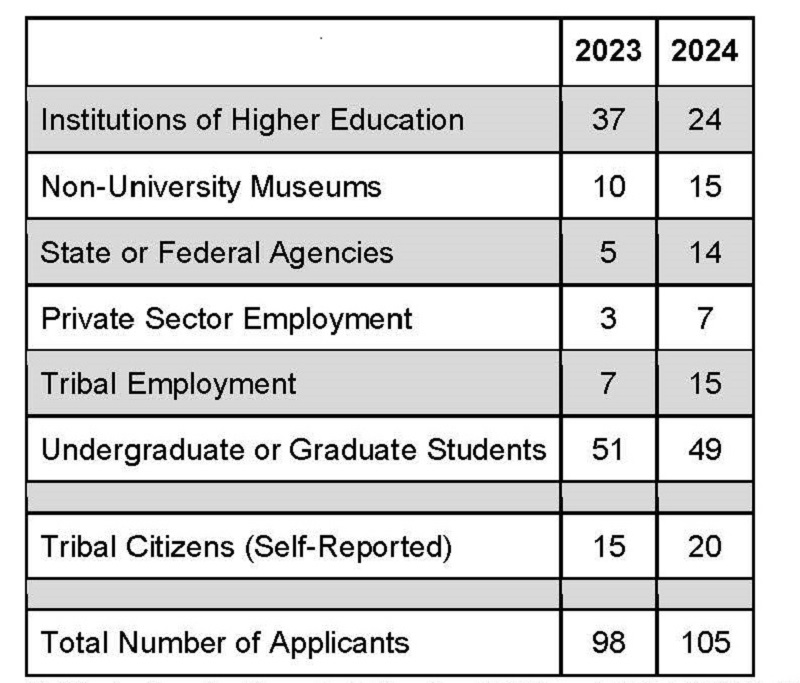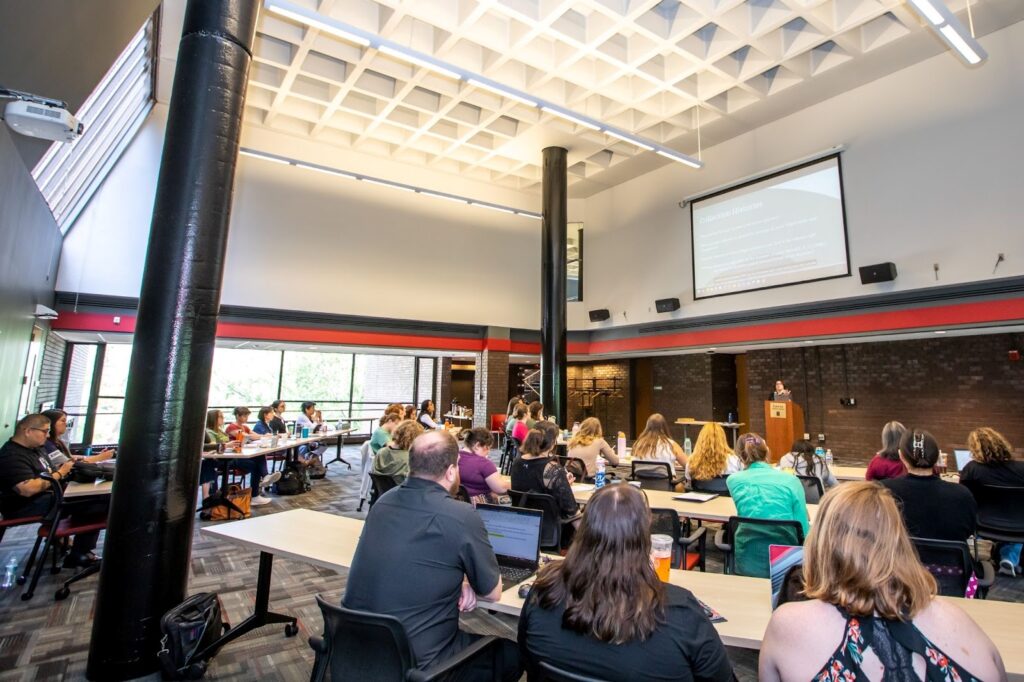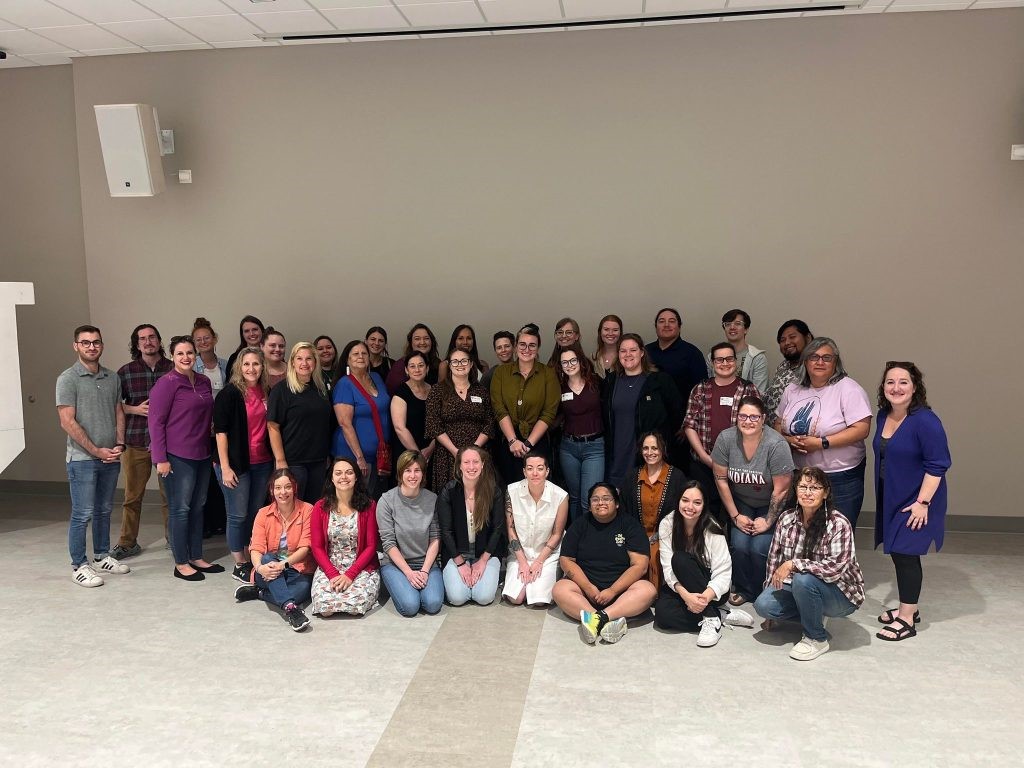Global Initiatives Grant Report – Intensive NAGPRA Summer Training and Education Program (INSTEP)
The Native American Graves Protection and Repatriation Act (NAGPRA) aims to facilitate the respectful return of Native American Ancestral human remains and cultural items to lineal descendants and affiliated tribal nations. While the NAGPRA statute and regulations outline the requirements of the law, implementing NAGPRA as a tribal or institutional practitioner is not well-delineated in the legal language of these texts. This disconnect has led to the disparate – but related – terms: the “letter of the law” versus the “spirit of the law.” The letter of the law is understood to mean its literal language; this includes definitions, stipulations, and legal process outlined in the text. The spirit of the law on the other hand refers to its intended meaning and best practices around implementation. While the letter of the law is clear from reading the statute and regulations, the spirit of the law is much more difficult to interpret from the simple act of reading NAGPRA.
The facilitators of this project remarked several years ago that the sensitive nature of NAGPRA, as well as its uniqueness in terms of Federal law, resulted in a complex system for which there was very little in the way of educational opportunities. The training opportunities that do exist range from $300-1400 in fees and do not cover travel to the host location. This can be prohibitively expensive, especially for students and tribal practitioners with access to fewer resources for this type of professional development.
We received funding from the Wenner-Gren Foundation’s Global Initiatives Grant program in 2022 to develop a NAGPRA training program that would be expense-free for admitted participants from tribal nations. This project became the Intensive NAGPRA Summer Training & Education Program (INSTEP), which has since taken place twice, in 2023 and 2024. The INSTEP program is committed to ensuring financial accessibility for participants, and as part of this effort does not require any tuition, registration, or participation fees for any admitted applicants. The majority of INSTEP applicants in 2023 and 2024 were students and tribal citizens, making financial accessibility a critical need for this program and for these areas of training more broadly. The INSTEP admission process prioritizes applicants who are tribal citizens and/or representatives in order to facilitate the development of NAGPRA expertise in tribal communities.

Table 1: Application statistics for 2023 and 2024 INSTEP program years.
The 2023 program received 98 total applications, which increased to 105 applications in 2024 (see the table above). Applicants were separated by category of employment, with the caveat that student status may overlap with some of these categories. The number of applicants in each category increased, with the exception of those from institutions of higher education, and this applied to both faculty/ staff and student applicants. Those employed by State or Federal agencies and those employed by tribal nations reflect the greatest increase in the number of applicants. During both application cycles, we were surprised to see that nearly a dozen applicants each year were currently employed as NAGPRA specialists. This indicates that even individuals already working as repatriation coordinators do not feel that they have the level of skill or knowledge necessary to do this work at the highest standards.
The general structure of INSTEP consists of a five-day educational seminar. These seminar days include presentations by NAGPRA and NAGPRA-adjacent scholars and tribal representatives. Past programs have featured Native and Indigenous Studies scholars, museum professionals, Tribal Historic Preservation Officers, and tribal archaeologists, in addition to tribal and institutional NAGPRA specialists. To complement these seminar presentations, each day includes 2-3 hours of general question and answer time, which provides space for educational content to focus on the specific needs of the participants in the room on that particular day.

Participants complete daily evaluations which focus on the speakers and content of that particular day, as well as an overall evaluation of the program and how effectively it meets participants’ needs. In the evaluations completed by 2023 and 2024 participants, the diversity of speakers and cost-free nature of the program have been highlighted as especially beneficial. These evaluations also speak to the importance of in-person networking opportunities, which INSTEP encourages by providing meals for participants who would like to stay and network during daily lunch breaks. We hope that when each participant returns to their home and career at the end of the program, their community of practice has expanded significantly.
One of our 2024 participants provided additional voluntary feedback on the program and kindly allowed its anonymous inclusion here: “From someone who gets very overwhelmed with understanding legal documents, THANK YOU! The way you [all] presented and explained NAGPRA and the new reg[ulations] made it much less intimidating and way more approachable. … I’ve learned more this week than I have in any education or employment setting and would suggest this program to anyone working with NAGPRA.” This feedback reflects our program goals of emphasizing accessibility, both financially and in the ways that educational content is presented.

The 2025 INSTEP program is tentatively scheduled for July 2025 and will be hosted by the University of South Carolina’s Institute for Archaeology and Anthropology. As in previous years, applicants who are tribal citizens or employees will be prioritized in the application review process and will also be eligible for assistance with travel funding. We are exceptionally grateful to the Wenner-Gren Foundation for funding the early stages of this project, and we look forward to continuing to offer the program in years to come.